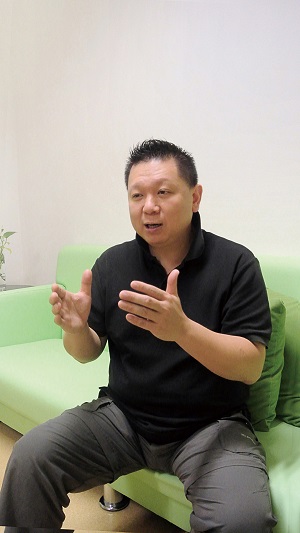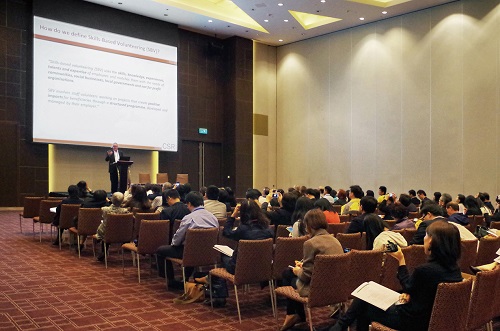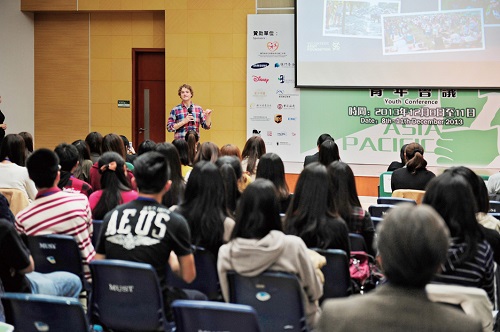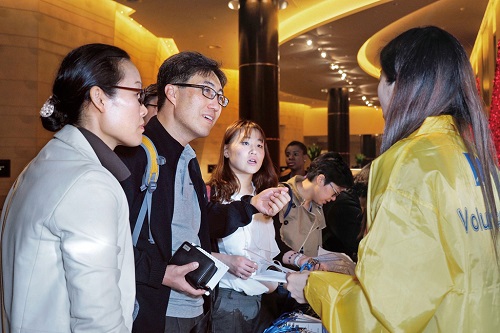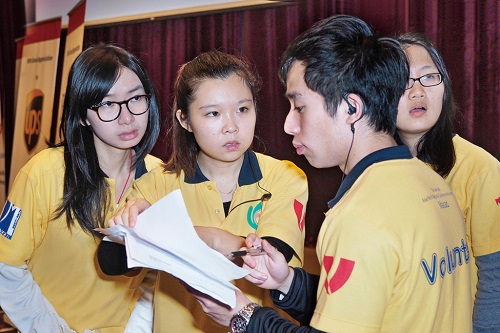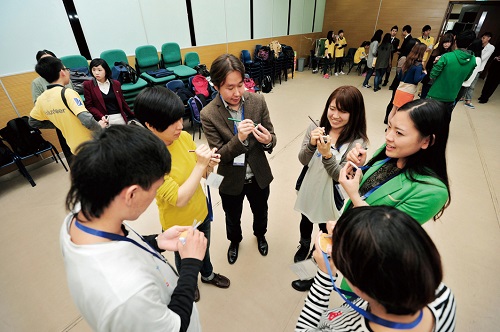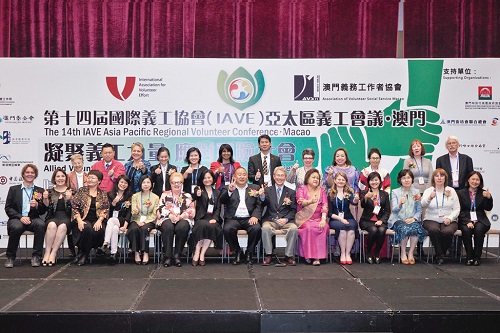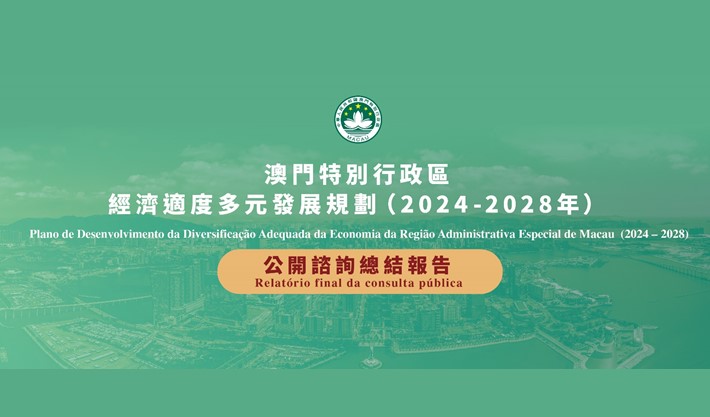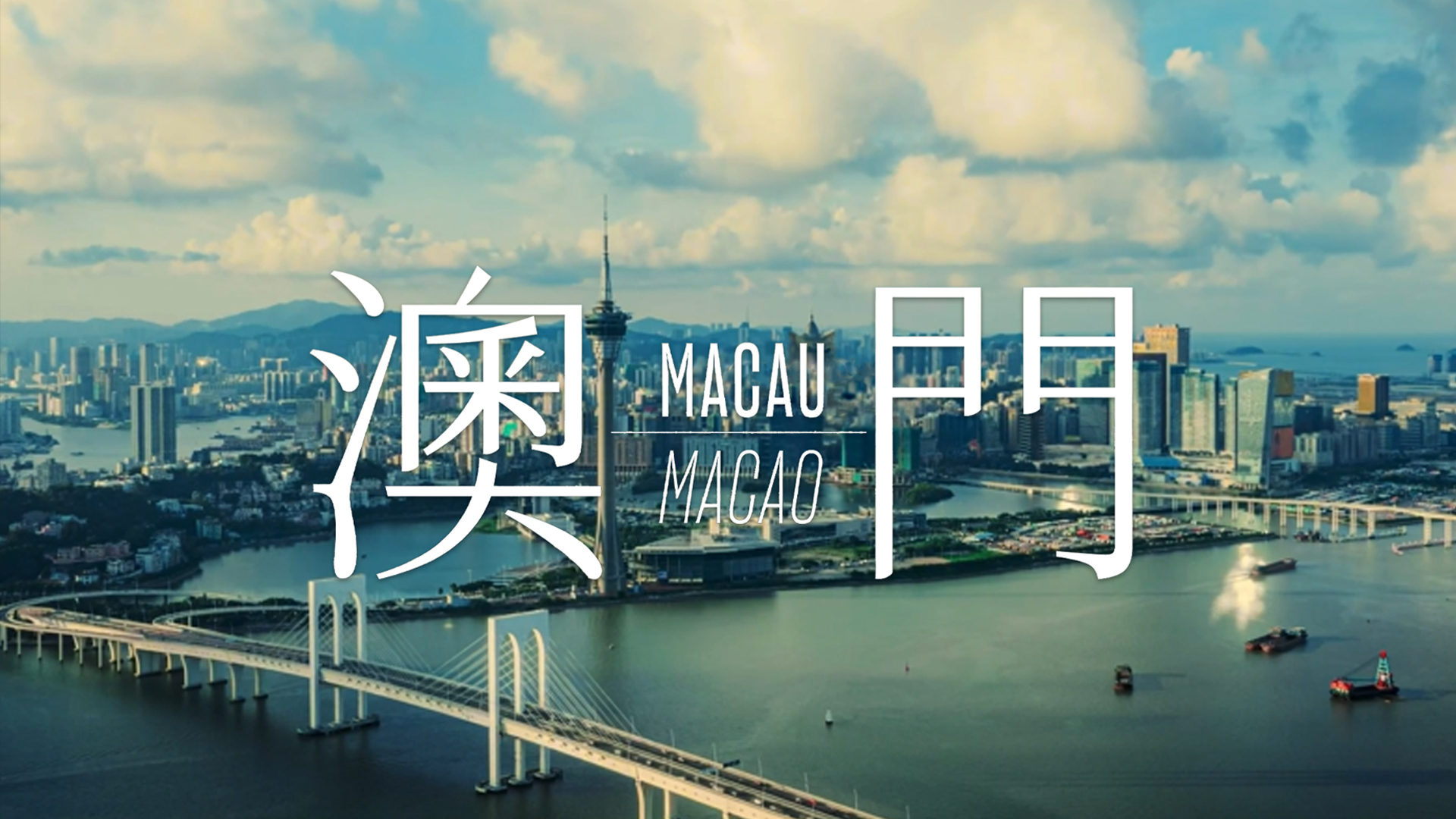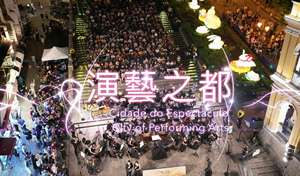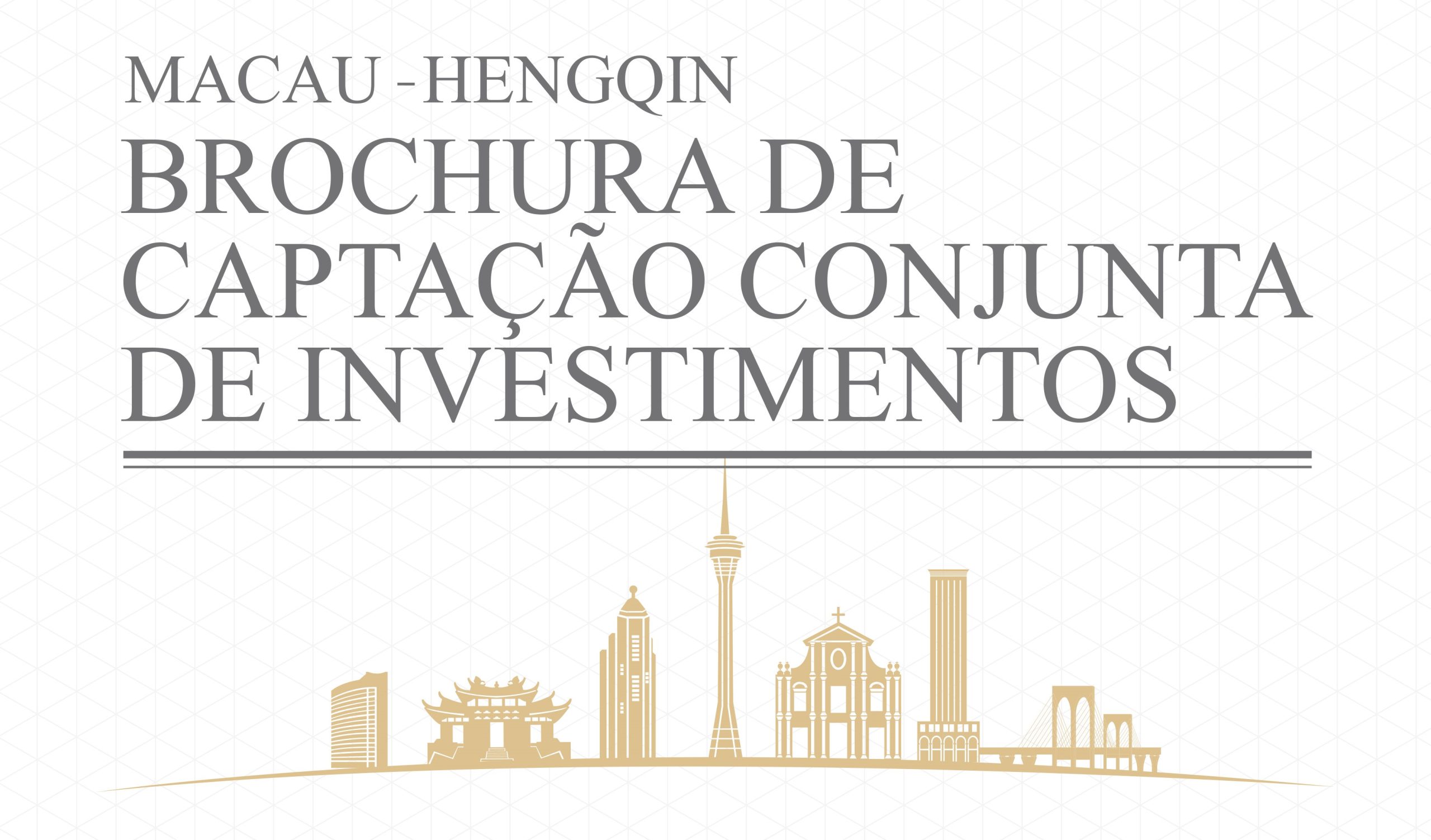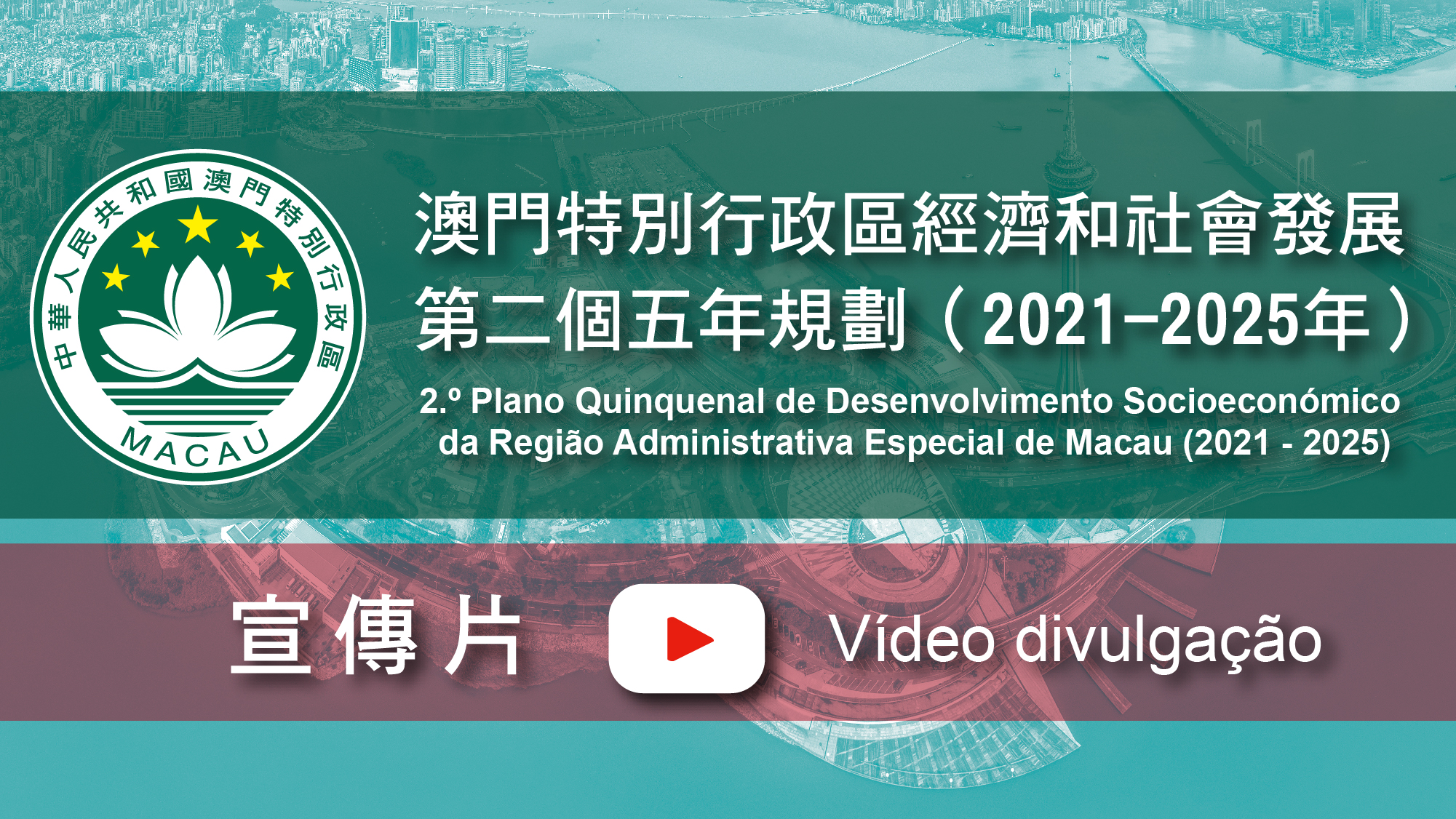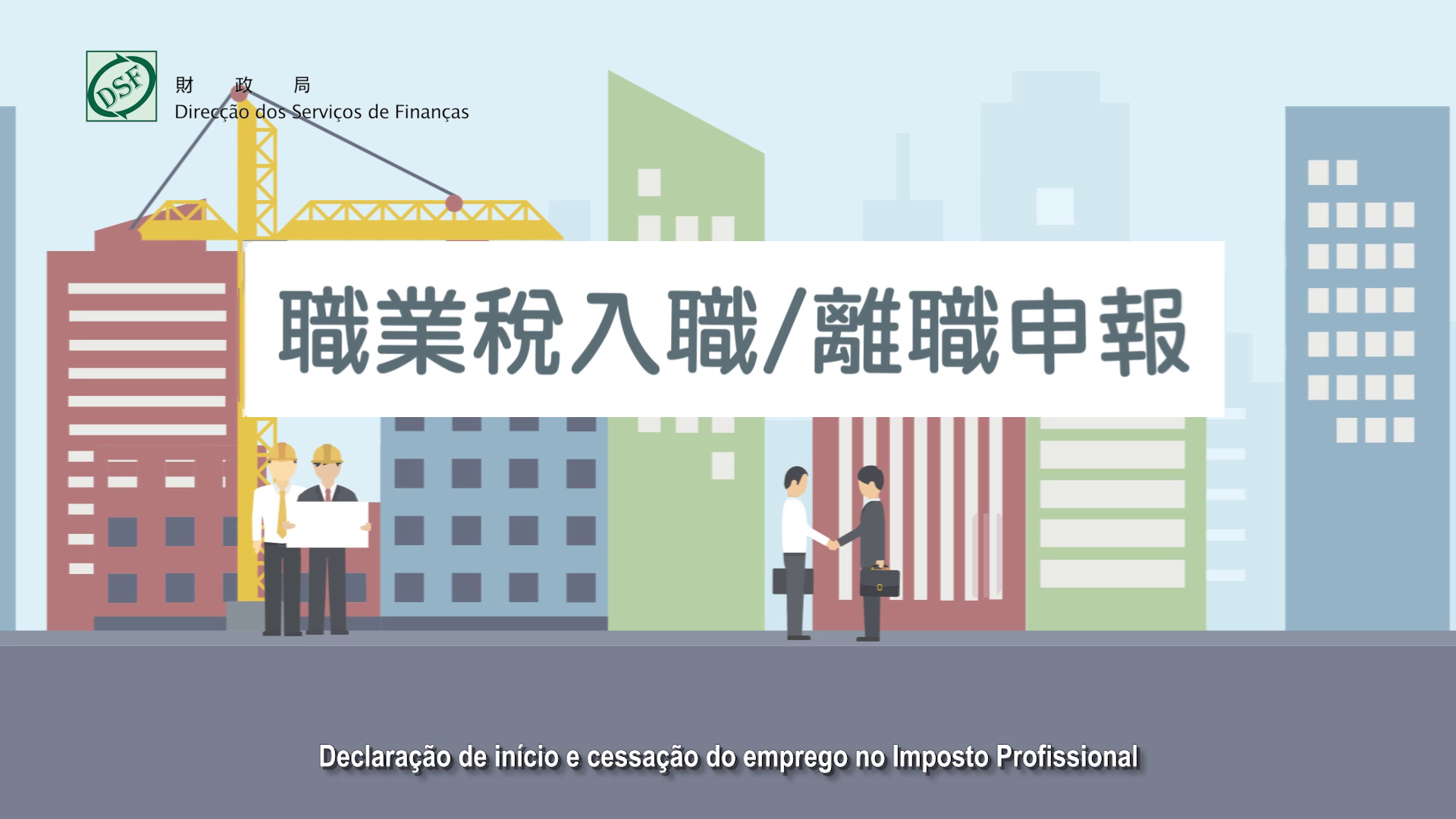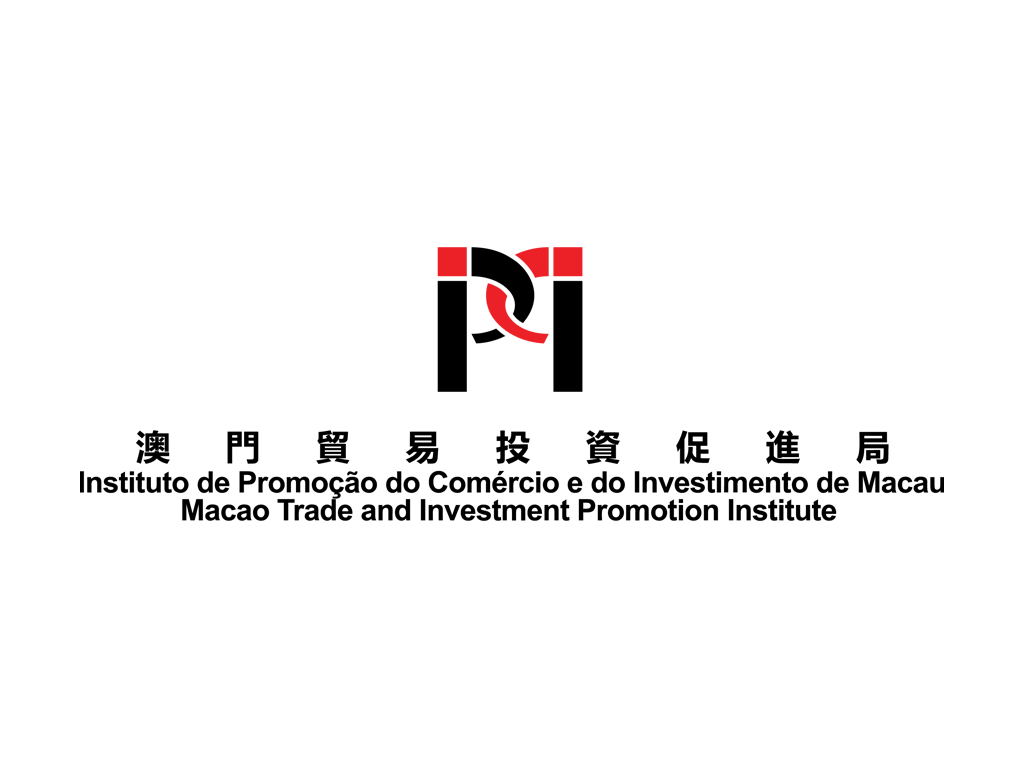Pesquisar
Macao’s Convention and Exhibition
Industry Seeks Different Ways to Grow
Macao is poised to boost the growth of the convention & exhibition industry on the back of the rapid expansion of the tourism and gaming industries to gain a larger market share in the more value-added MICE industry. Macao already has worldclass hardware for MICE, so in order to attract more high-end international business people to the city to organise or attend exhibitions, the relevant Macao SAR Government departments have launched a series of programmes, such as the Convention and Exhibition Stimulation Programme, the International Meeting and Trade Fair Support Programme, the Incentive Travel Stimulation Programme, and the “One-Stop Service” for MICE Bidding and Support in Macao, to attract more international fair organisers to test the city’s brand-new business and trade platform.
Looking back over 2013, more than 1,000 conventions and exhibitions were held in Macao, among which 66 were exhibitions with total number of visitors reaching 1.893 million person/times, a 27% growth over the previous year. Many of the events have been held time and again in the city.
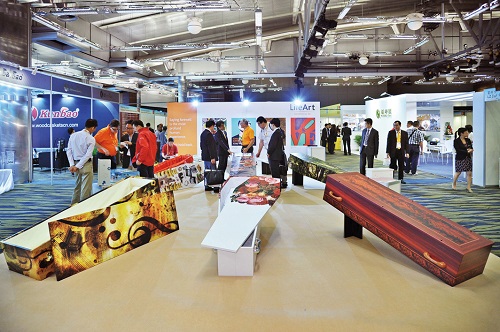
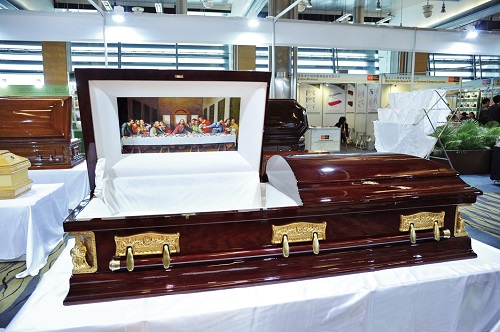
Concentrating on medium-sized exhibitions with special themes, can avoid fierce competition from other international convention & exhibition centres in the region.
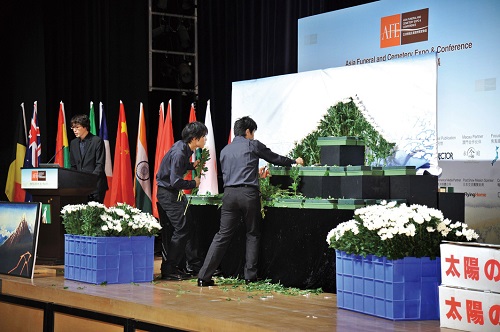
For example the Asia Funeral and Cemetery Expo & Conference returned to the city after a five year hiatus. Organisers moved the Fair from Hong Kong to Macao in May this year. Kenny Lo, Executive President of Vertical Expo Services Company Ltd, does not believe that the government subsidies for exhibitions are the biggest factor for organisers. The colourful entertainment environment, ample supply of spacious hotel rooms and 50%-plus cheaper exhibition floor rental fees are the main reasons for returning to the city. “The key question was whether the number of international buyers would drop or not once the event was moved from Hong Kong to Macao. Surprisingly, many buyers from the Middle East and South America, who were absent from the event for many years, applied once they knew that it would be moved to Macao. It seems that the city is very attractive to them, showing that we made the right choice!” He indicates that the Expo & Conference will be held in Macao for the next three to five years.
Frankly speaking, Macao’s convention & exhibition industry is still a fledgling sector. There are improvements to be made to the overall output and thus attract more international professional visitors. Kenny Lo believes that Macao’s convention & exhibition industry must have a very clear market position. First, it should focus on professional fairs to attract international buyers, instead of ordinary consumer product exhibitions for locals. Second, it should carefully select exhibition themes in key areas beyond ordinary exhibitions such as electronic products, gifts or toys. Otherwise you can never beat Hong Kong, Shanghai or Singapore on the size of the events. Hong Kong has very strong geographic advantages, there are many international flights, many buyers have representative offices in Hong Kong so they only need to catch the MTR to attend an event. Sometimes they even complain that the exhibition hall in Hong Kong airport is too far way.
Where there is a will, there is a way. Kenny Lo emphasises that Macao’s convention & exhibition industry should not “strive to be the biggest” or “strive to have most visitors”, instead it should concentrate on medium-sized exhibitions that are more professional, innovative or have special themes, thus avoiding inyour- face competition with international convention & exhibition centres in the region. “Macao does have great potential with such as a wide variety of entertainment choices and a comfortable leisure urban atmosphere. It has clear advantages for holding certain kinds of conventions & exhibitions. But the key point is to make itself different. If there are the same kinds of events in other places, why should international buyers choose to come to Macao? Therefore, I believe that Macao, if it wants to grow this business, has to become a Must Go procurement and communication platform for international buyers! It means that “Macao has what others don’t, and Macao is more specialised than other locations.”Ml
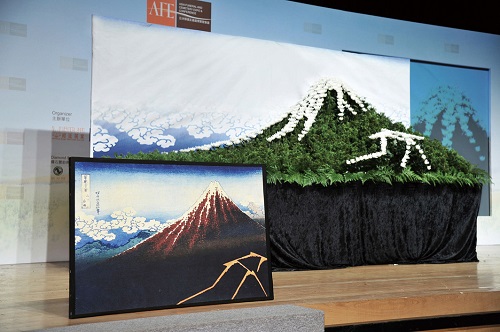
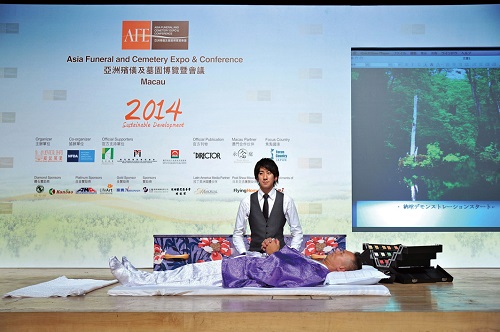
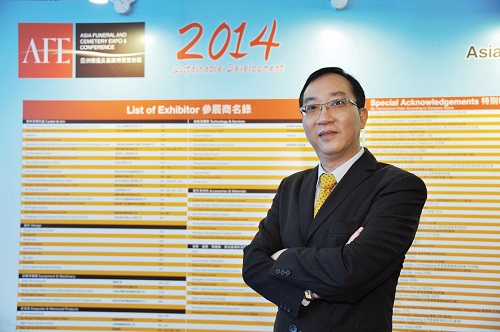
Asian Seed Congress Sees Macao Sprouting as a Convention Destination
There are many aspects to consider when organising a convention that needs to cater for over a thousand attendees. Accessibility is one priority when choosing the host city but it’s not the only thing, and the Asia & Pacific Seed Association (APSA) found that Macao has got what it takes to be a destination for meetings, incentives, conventions and exhibitions (MICE).
Established in 1994 and funded by the Food and Agriculture Organisation (FAO) and Danish International Development Agency (DANIDA), APSA aims to promote quality seed production and marketing in the Asia and Pacific Region.
APSA’s membership has grown from just 29 countries to about 40 countries with a total of 580 members today, leading it to becoming the largest regional seed association in the world.
This year, APSA is organising its 2014 Asian Seed Congress with the theme on China, since it is considered the most important seed market in the world. To be relevant to the theme, APSA wanted to hold the congress on Chinese soil.
APSA has previously been to Mainland China and Hong Kong, but as costs are going up and the size of the delegation has grown to 1,200 people, APSA wanted to give its delegates a new and value-for-money experience.
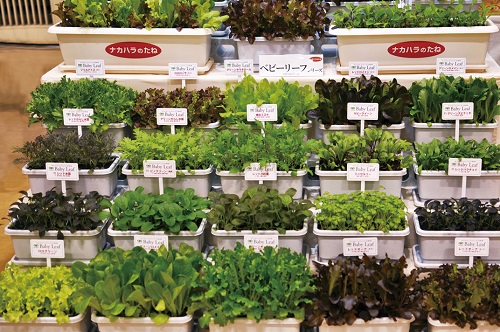
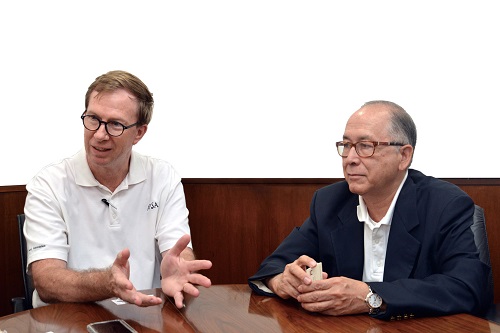
After weighing the pros and cons, Macao was picked as the host city for APSA’s 2014 Asian Seed Congress, which will take place from 10 to 14 November. The five-day congress features a workshop on Research and Development in China’s seed industry, trade show, business-matching sessions, a cocktail reception and a gala dinner.
So, what made APSA choose Macao?
APSA’s National Organising Committee Chairman Anthony Tse is based in Hong Kong and travels to Macao about once a year and has noticed the changes and new developments in town every time he visits.
Plus, when you have gaming revenue six times that of Las Vegas, some of the world’s largest hotels and top class entertainment, it stirs curiosity.
“Earlier, Macao was not an option because there were no facilities, but ever since the hotels along the Cotai Strip opened one after another, organising the congress in Macao is possible,” Tse said, “Just imagine, there’ll be over a 1,000 people at our gala dinner, it’s not easy to find a place to put a hundred or so tables. It can be a nightmare.”
“Macao is a very attractive city for conventions. With the presence of the integrated resorts, all the facilities are here: the hotels are excellent and the city is accessible,” Tse said.
“It’s not easy to hold a convention of this size. Not every Asian city has hotels and convention facilities all in one place. When we started, APSA congress was not so big, but it has grown to this size now so our choice is limited and Macao can offer us a good choice,” Tse added.
Tse admitted that they considered Hong Kong but because the costs were prohibitive, Hong Kong became out of the question.

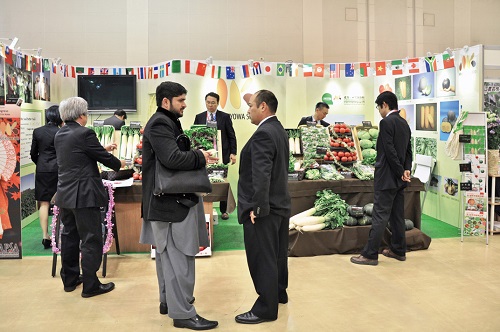
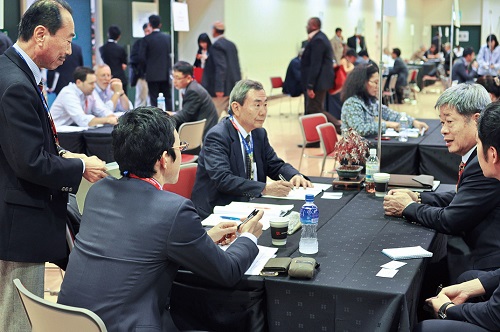
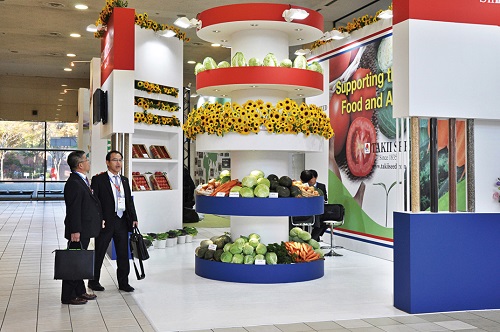
According to APSA Director Tom Burns, running such a large congress costs on average US$1 million, but quality of service, as with most things, costs money.
“Japan is more expensive to run a congress, other countries like India or Thailand might be cheaper,” Burns said, “But with Macao, quality is high and the cost is relatively less expensive.”
In addition to that, Macao Trade and Investment Promotion Institute (IPIM) provides a “One-Stop Service” for MICE Bidding and Support in Macao, which ranges from assistance to organise events in Macao to promoting the events, as well as helping to apply for the Convention and Exhibition Stimulation Programme.
“The other good thing is the Macao government’s financial support, which very few countries or cities will do or do only a certain extent. Macao is very generous,” Burns said.
With the subsidy, APSA is able to keep the costs low but it can still provide quality service and experience for its delegates.
According to Burns, members only have to pay US$600 in registration fees for the five-day Asian Seed Congress this year.
“If you attend a congress like this elsewhere, you’ll be paying double or even triple. So, Macao is value for money,” Burns said.
Tse added, “A lot of members are not necessarily big companies. A lot of them are small individual seed traders, they cannot pay a registration like a multinational, that’s why we’re here to serve.”
“We just hope to break even with the subsidies,” Tse said.
Besides costs, Burns also pointed out that one of the advantages of Macao is that it offers visa-free entry to travellers from over 60 countries and territories.
“A lot of countries and territories have visa requirements, which makes it very difficult for a lot of nationalities. Coming here to Macao is very easy,” Burns said.
Burns also praised the seamless transition from the Hong Kong International Airport to Macao, an aspect that must not be overlooked.
According to Burns, while many of the 1,200 delegates are from the Mainland, many of them are from east Asia and south-eastern Asia, and thus will not be able to fly directly to Macao, and also a fair share of the delegates will be travelling from Europe, Pakistan, South Africa, South America and the US, so they will fly into Hong Kong and transit to Macao, which is just an hour away on a high-speed ferry.
Another appeal of Macao is the Chinese-Portuguese heritage environment and the entertainment scene.
“A big part of the congress is to entertain the clients and the good thing about Macao is there are a lot of this, there are lots of things to see that’ll entertain our clients,this is important too,” Burns said.
According to Burns, they are planning to organise city tours for its delegates so they can go out and see the city after being inside the Venetian all day.
“That’s why we don’t have it every year in the same place. Experience is part of it, it’s part of going to a congress,” Burns added.
Tse pointed out, “You know, we work all day, have meetings with so many people. At night, we want to relax and in Macao can do this, there is a lot of fun to be had here.”
Food is also another aspect that should not be underestimated. Because its delegation is made up people from around the world, it is important that the food caters to their needs.
“We have people who are from Muslim countries and they want halal food and we have people who are Hindi vegetarians, and hotels in Macao can do this,” Burns said.
Finally, Burns and Tse highlighted six aspects they need to consider when they plan their congress, which are accessibility, facilities, activities, food, value for money and security.
“Macao fits into all the criteria,” Tse said. “I think Macao can be a successful convention destination.”
“The only thing I worry about is that Macao has so many activities, the delegates may not be able to get up early in the morning for the congress!” Tse said, tonguein- cheek.Ml
IEEE Macau Promotes Macao’s
“Academic-Research-Industrial Collaboration” via TENCON
The Institute of Electrical and Electronics Engineers of Macau (IEEE Macau) will hold IEEE TENCON 2015 in the city since it bid and won the right to hold it for the first time. Wong Man Chung, Chairman of the Board of Directors and Vice Chairman of the organising committee, says that successful bidding of TENCON 2015 is due to the “endorsement” and support of Macao Trade and Investment Promotion Institute (IPIM) and the international background of IEEE as well as the confidence of TENCON in Macao’s MICE hardware facilities. And the conference also complies with the international standard of ICCA.
According to the Institute, TENCON is IEEE’s top international technology conference in the Asia Pacific Region (also known as Region 10, one of IEEE’s largest regional chapters) and has been held annually since 1980. TENCON provides an important platform for researchers, engineers, professors and students, enabling them to establish communication networks and discuss creative ideas and research development in electrical, electronics, computer science and related emerging areas.
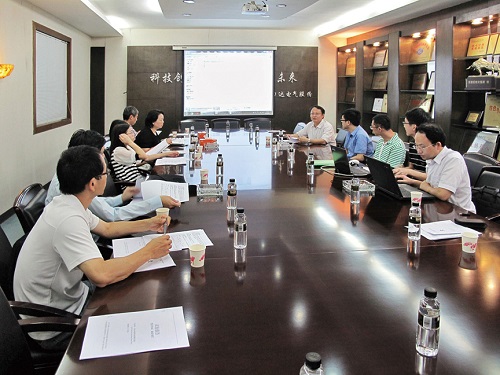
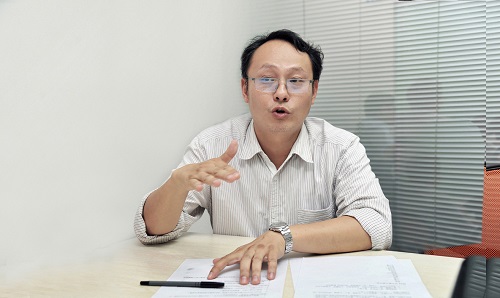
IEEE points out that the theme of this year’s TENCON 2015 is “Academic-Research-Industrial Collaboration: Challenges and Opportunities in Electrical, Electronic, Computer, Communication and Information Engineering”, covering areas of electronics & energy, electrical and electronical.
Cheang Tak Son, Chairman of the Board of Supervisors and Chairman of the organising committee, says that he was “surprised and overjoyed” when he knew that Macao was chosen as the venue for TENCON 2015.
He says, “We were told that the competition was fierce since many cities participated in the bidding, unexpectedly we were selected. In fact many cities have tried to bid for it on numerous occasions but have failed many times. Nevertheless, we succeeded at the first attempt. It really feels great!”
Wong Man Chung emphasises the importance of the support of the SAR Government for the bidding. “In order to encourage us to bid, IPIM gave a detailed introduction on the specific supporting measures for the convention and exhibition bidding, i.e. “One-Stop Service” for MICE Bidding and Support, helping us decide we should bid. Without government endorsement, probably we wouldn’t have had the courage and confidence to bid because the risks involved are pretty big.”
Cheang Tak Son points out that the support of IPIM is multi-dimensional, including supply of relevant information, and solid support and assistance on coordination and administrative procedures among government departments.
Also they believe that Macao has the conditions to organise similar international activities. Compared to MICE facilities in Las Vegas in the US, Macao’s hardware for large MICE events is at least as good since it has MICE venues able to accommodate several thousand people.
As for the size of this conference, based upon the historical statistics the total number of participants usually surpasses 300, the Institute estimates that around 400 domestic and overseas experts and academics will attend the conference in Macao next year.
Wong Man Chung indicates that Science and Technology Development Fund (FDCT), since its establishment, has received great funding support from the Government. Scientific research has generated results, but is always innovative on a theoretical level and needs time to be developed for practical application. Therefore, “we hope that, via TENCON, more professionals can come together to exchange ideas. The theme of TENCON 2015 is “Academic-Research-Industrial Collaboration”, meaning collaboration between manufacturing and R&D entities can jointly transform R&D results into reality and then into production. The scientific and technological development of Macao needs to go through a transitional period from R&D to application, and should be in line with the actual situation and needs of the city. Currently Macao’s IT has progressed, but it is still in the middle of a transitional period and is far from being mature.”
Lastly, the Institute summaries that: “the key factors for the successful bidding of the conference were, first of all, government support, and second, the detailed planning of the hosting entities. As the theme of the conference is “Academic-Research-Industrial Collaboration”, the Institute is planning to find enterprises to be co-hosts of the event. It is hoped that the conference can help Macao establish a mechanism for academic-research-industrial collaboration to promote the development of science and technology.Ml
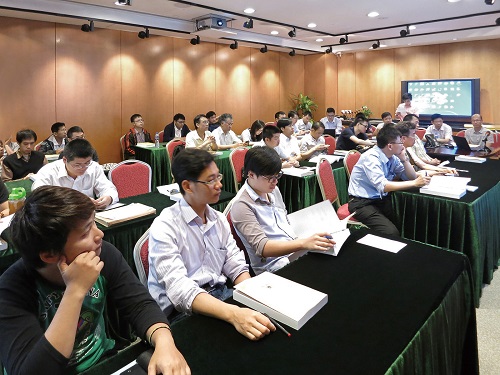
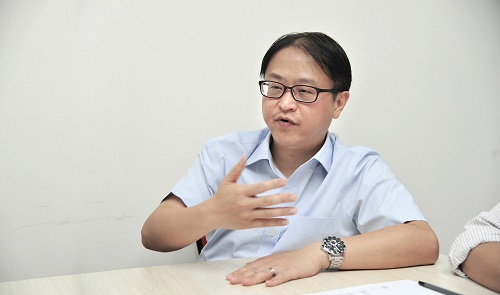
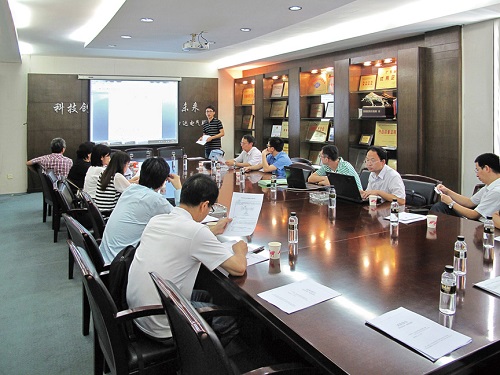
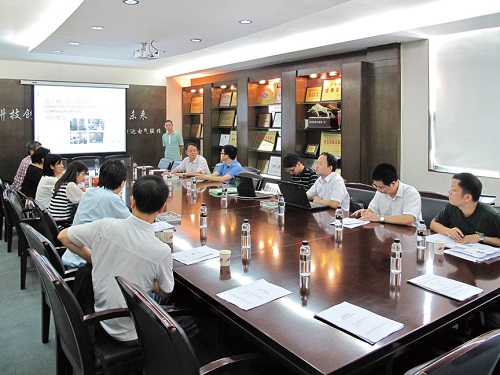
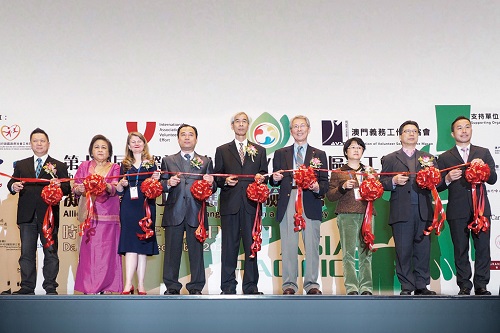
MICE Preferential Polices Support Association of Volunteer Social Services of Macao to Successfully Organise
the 14th IAVE Asia Pacific Regional Volunteer Conference
From the 9 to 12 of December 2013, Association of Volunteer Social Services of Macao successfully organised the 14th IAVE Asia Pacific Regional Volunteer Conference with the theme of “Allied Volunteer Efforts – Being Change Agents in a Risk Society” in the Grand Hyatt Macao. More than 300 international members and young volunteers from different organisations and entities from countries and regions such as Hong Kong,Japan, Macao, Mainland China, the Philippines, South Korea and Taiwan came to the city to share their various experiences in volunteer work in the different regions, different countries and with different ethnicities, with the aim of promoting Macao volunteers’ study of and communication with international volunteers leaders, continuously improving their work, keeping up-to-date and expanding their international exposure. And the conference also complies with the international standard of ICCA.
This was definitely a rare opportunity to communicate with contemporaries, but it was not at all easy talking about the preparing procedures, according to Leo Hung,who went to Canada to study business administration, returned to Macao and actively participated in volunteer work in the 1990s, became a professional social worker after training, and finally became Director General of Association of Volunteer Social Services of Macao. He says that the conference is not only the biggest and the most difficult event he has had to deal with since he began working as a volunteer, but also the one with most twists and turns. Even today he still breaks into a cold sweat when looking back over the event. He says, “Usually such international conference organisers would have been chosen three years ahead. We in Macao were selected as the organiser because there was a war in the original country chosen as the venue. Just imagine, for an international conference with several hundred participants, we only had one year to prepare, a small budget of merely MOP 3 million, and only two employees. For a micro organisation like us, it was not just difficult, it was almost impossible!”
Leo Hung sighs with emotion and says that, due to time constraints, it was already extremely difficult just to cover the funding gap. Fortunately the Macao Trade and Investment Promotion Institute (IPIM) provided strong encouragement and support with its “One-Stop Service” for MICE Bidding and Support in Macao. With strong support from IPIM, they successfully applied for “the Convention and Exhibition Stimulation Programme” from the Macao SAR Government, getting support on venue rental fees, accommodation expenses for participants and expenses for keynote speakers of the forum. They also successfully invited IPIM to be one of the supporting entities.
“IPIM’s MICE supporting and preferential policies are very solid. Such as: assisting us to bid for convention and exhibition projects; designating staff to provide follow-up services and assistance in organising events in Macao.” Leo Hung explains, “Back then the two of us had to go through all the procedures and take care of everything, large and small. We struggled to handle the situation, but fortunately IPIM’s staff provided us with a lot of guidance, such as showing us how to fill in the forms and what receipts we should keep and so on. We were helped a lot, avoiding wasting time and potential troubles!”
But what Leo Hung is mostly proud of is that the organisation of the conference won unanimous praise and the actual expenditure of the event was below the original budget. This not only shows that their hard work was worth while, but also more importantly, that the SAR Government’s preferential and supportive policies and measures to promote moderate economic diversification and to speed up the development of MICE and other emerging industries are very timely and effective, especially for micro organisations and SMEs and micro enterprises, just like providing us with fuel in winter.
“The Convention and Exhibition Stimulation Programme”, since its inception in 2012, has helped more than 200 organisers of large projects, to the tune of MOP 124 million. This year the SAR Government has added the “International Meeting and Trade Fair Support Programme”, including various sorts of technical assistance to encourage public-private partnership in joint bidding for the right to host international conferences. Leo Hung summarises his experience and points out that, the right to host international conferences is usually decided three years in advance. But many of the assistance measures provided in Macao can only be applied for a year ahead. Therefore, organisers, especially those with limited financial resources, could face great uncertainties. Another issue is that banks usually won’t provide credit guarantees to civil organisations or associations, causing the problem of liquidity. Also, civil organisations or associations are often not familiar with time requirements and the procedures to bid for international conferences. Usually international hotel chains are more informed in this respect. Therefore, if the Government could provide the relevant assistance, it is believed that Macao will be fully equipped to organise more large conferences for non-governmental exchanges and public interest and build an international platform for non-governmental exchanges.Ml
